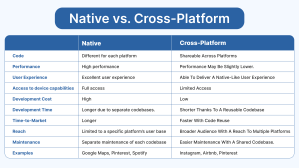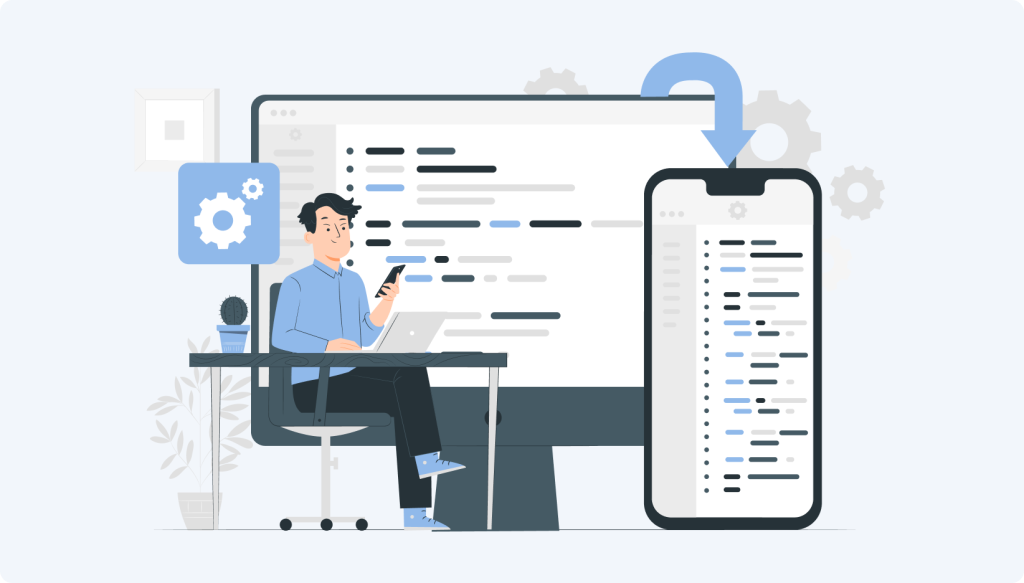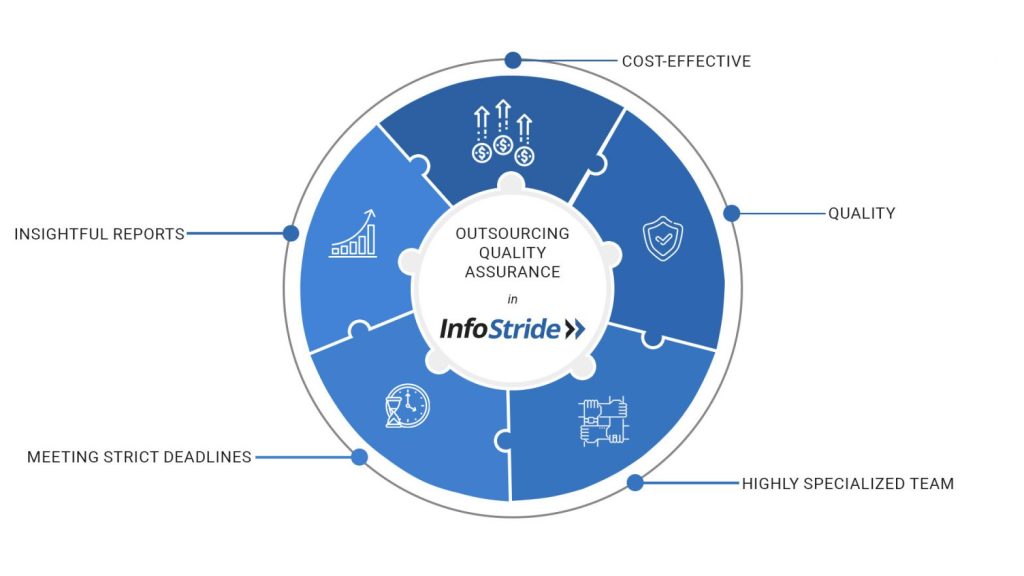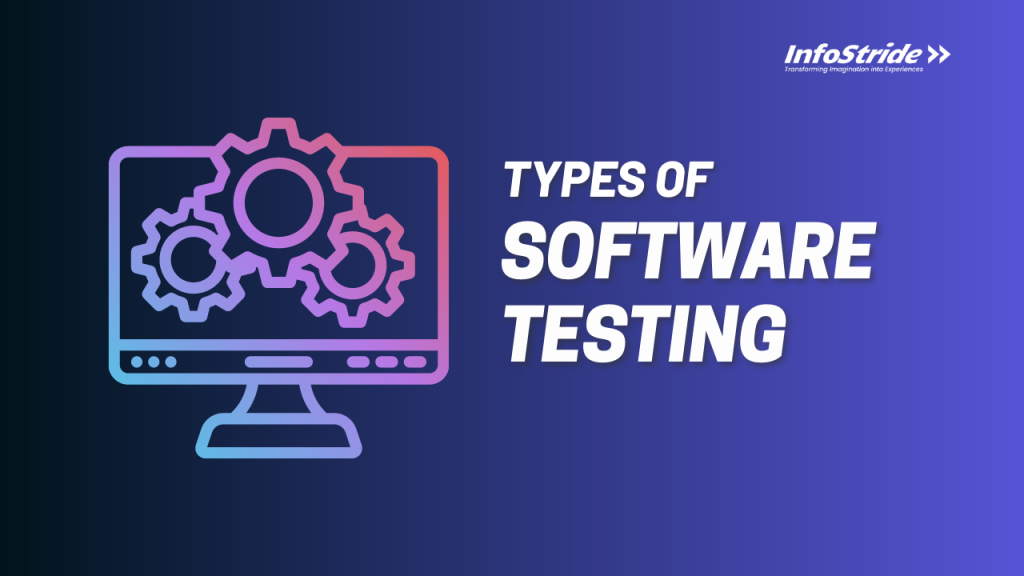With 6.92 billion smartphone users across the globe, the world has gone mobile and there is no turning back. Thus, it comes as no surprise to see more businesses investing in mobile app development to drive growth.
In the current highly booming mobile app development world, cross-platform app development frameworks have revolutionized the way businesses build apps today.
There are many popular apps built using cross-platform app development frameworks such as Spotify, Uber, and Instagram. These leading examples highlight the great success of cross-platform app development. At the same time, inspiring aspiring entrepreneurs to choose this mobile app development approach.
With many cross-platform app development frameworks available, it can be challenging to choose the one that will best meet your needs. To help you find the right one, we’ve come up with a list of the five best cross-platform app development frameworks.
But before we deep dive into the list, let’s understand some basics.
What is Cross-Platform App Development?
Cross-platform app development is an approach that allows you to create apps for multiple platforms, such as Android, iOS, Windows and macOS, using a single codebase.
The approach eliminates the need to write code for each operating system, saving you time and accelerating the development process. The ultimate goal of cross-platform app development is to achieve multi-platform reach in a cost-efficient manner.
Native vs. Cross-Platform App Development
Native apps are designed for a particular operating system using platform-specific programming languages. For example, Java or Kotlin is used to develop native apps for Android and Swift or Objective-C is used to build native apps for iOS.
As mentioned above also, a cross-platform app development approach enables using a single codebase to build apps for both Android and iOS, reducing development costs and time significantly.
For your next mobile app development project, our below comparison can help you decide which approach is right for you.

5 Best Cross-Platform App Development Frameworks
Mobile app development is flooded with so many cross-platform development frameworks to choose from. We have come up with a list of the top 5 best cross-platform app development frameworks in the market right now. Have a look below!
1. Flutter
According to Statista, Flutter is the most popular cross-platform app development framework, with a whopping 46% of developers across the world using it.
Developed and released by Google in 2017, Flutter is a free and open-source framework for building natively compiled applications for Android, iOS, Windows, macOS, Linux, and the web, using a single codebase.
Flutter utilizes the Dart programming language, also created by Google.
Since Flutter facilitates access to native device features and APIs via platform-specific plugins, it powers the development of visually attractive and high-performance applications with a native-like user experience across platforms.
Pros of Flutter:
- A single, unifying codebase for multiple platforms
- Hot reload feature for faster development iterations
- High-performance apps with a native-like experience
- Beautiful and customizable UI with a rich widget library
- Access to native features and APIs via platform-specific plugins
Cons of Flutter:
- Larger app size compared to native applications
- A steep learning curve for developers who are unfamiliar with Dart
- Limited availability of certain platform-specific functionalities
Also Read: Famous Apps Built with Flutter
2. React Native
According to Statista, React Native is the second most popular cross-platform app development framework, with 32% of developers across the world using it.
Developed by Facebook in 2015, React Native is a JavaScript-based mobile app framework that allows you to build natively rendered applications for multiple platforms, including Android, iOS, macOS, Windows, tvOS and the web.
Pros of React Native:
- Up to 80% code reusability across platforms
- Hot reloading feature for faster development cycles
- Efficient UI rendering with the use of native components
- Wide community support
- Access to native device features and APIs
Cons of React Native:
- Not ideal for complex apps
- Dependency on 3rd-party libraries for advanced functionalities.
- Compatibility and debugging issues
Also Read: Famous Apps Built with React Native
3. Ionic
Ionic is one of the most preferred cross-platform app development frameworks. It is an open-source framework for building hybrid cross-platform applications using web technologies such as HTML, CSS, JavaScript, Angular, React, and Value.
Using a single codebase, Ionic enables the creation of apps that can be run on Android, iOS, desktop and the web.
Pros of Ionic:
- Cross-platform development with a single codebase
- Extensive library of pre-built UI components
- Integration with Angular for creating scalable applications
- Access to native device features through Cordova plugins
- Strong and active community
Cons of Ionic:
- Absence of hot reloading feature
- Slow performance
- Compatibility issues
Also Read: Famous Apps Built with Ionic
4. Xamarin
Acquired by Microsoft in 2016, Xamarin is an open-source cross-platform app development framework that utilizes the C# language and the .Net framework to build native mobile applications for Android, iOS and Windows.
Xamarin provides a wide range of tools and libraries that facilitate code sharing and platform-specific customization.
Pros of Xamarin:
- Up to 80-90% code reusability across platforms
- Performance close to native
- Large community and support from Microsoft
- Integration with Microsoft Azure enables leveraging cloud services
- Native user experiences
Cons of Xamarin:
- Steep learning curve for developers not familiar with C# or .NET.
- Larger app size due to inclusion of Mono runtime
- Expensive for professional and enterprise Use
Also Read: Famous Apps Built with Xamarin
5. Kotlin Multiplatform Mobile
Kotlin Multiplatform Mobile is an SDK created by JetBrains that enables you to share code between different platforms, including iOS and Android. It allows the creation of cross-platform mobile apps using the Kotlin programming language.
Pros of Kotlin Multiplatform Mobile:
- Code sharing between Android and iOS
- Native performance
- Full access to platform-specific APIs
- UI can be split for each target platform
- Easy to learn
Cons of Kotlin Multiplatform Mobile:
- Steeper learning curve for developers new to Kotlin
- Early-stage technology with evolving tooling and documentation.
- Small community
The Bottom Line
That was our take on some of the best cross-platform app development frameworks out there. Owing to its great cost-effectiveness, more businesses will adopt the cross-platform app development approach to build their mainstream apps and reach a wider audience.
If you’re still struggling to decide on the right cross-platform mobile app development framework for your requirements, let’s connect. We have expertise in building top-notch cross-platform apps with React Native, Flutter, Kotlin Multiplatform Mobile and other leading frameworks for businesses across various industries.
Few Hand Picked Articles for You
THE AUTHOR
Infostride












